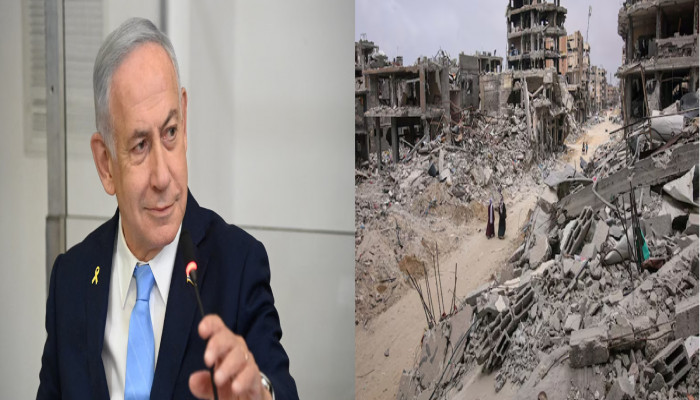Israel orders large-scale evacuation of Rafah amid escalating conflict
- In Reports
- 04:42 PM, Mar 31, 2025
- Myind Staff
On Monday, the Israeli military issued widespread evacuation orders for most of Rafah, signaling that a major ground operation in the southernmost part of Gaza could happen soon.
Earlier this month, Israel ended its ceasefire with Hamas and resumed air and ground attacks. In early March, it stopped all supplies of food, fuel, medicine and humanitarian aid to Gaza's nearly 2 million residents to pressure Hamas into accepting changes to the truce agreement. Evacuation orders were issued for almost the entire city and nearby areas. The military instructed Palestinians to move to Muwasi, a coastal area filled with overcrowded tent camps. These orders came during Eid al-Fitr, a Muslim holiday that usually brings joy as it marks the end of Ramadan fasting.
Last May, Israel carried out a major military operation in Rafah, a city on the border with Egypt, causing widespread destruction. The military took control of a key border route and the Rafah crossing, which was Gaza’s only way to the outside world, not directly controlled by Israel. Israel had agreed to withdraw from the corridor as part of a ceasefire deal with Hamas in January, which was signed under US pressure. However, it later refused to withdraw, saying it needed to stop weapons smuggling. Israel has promised to increase its military operations until Hamas frees the remaining 59 hostages, out of which 24 are believed to be alive. Additionally, Israel has demanded that Hamas disarm and leave the area, conditions that were not part of the ceasefire agreement and have been rejected by Hamas.
Israeli Prime Minister Benjamin Netanyahu said on Sunday that Israel would handle security in Gaza after the war. He also mentioned implementing former U.S. President Donald Trump's plan to relocate Gaza’s population to other countries, calling it voluntary emigration. However, Palestinians strongly oppose this plan, seeing it as forced removal from their homeland. Human rights experts also say it could break international law. Meanwhile, Hamas insists on following a signed agreement, which states that the remaining hostages should be released in exchange for a permanent ceasefire and Israel’s withdrawal. Talks about these terms were supposed to start in February, but only early discussions have taken place so far. The war started on October 7, 2023, when Hamas-led militants attacked Israel. They stormed army bases and farming communities, killing around 1,200 people, mostly civilians. They also took 251 people hostage, though most have been released through ceasefires or deals.
In response, Israel launched a military offensive that has killed over 50,000 Palestinians, according to Gaza's Health Ministry. The ministry does not specify how many were civilians or fighters. At the peak of the war, about 90% of Gaza’s population was displaced, with many forced to move multiple times. Large parts of Gaza have been destroyed, and it is unclear when or how rebuilding will begin.







Comments